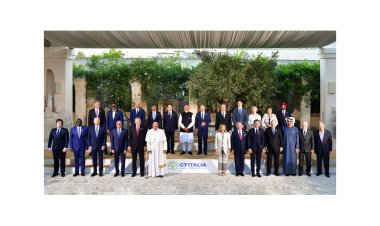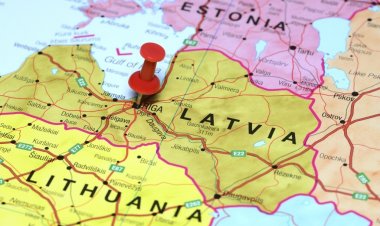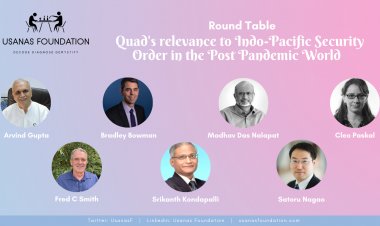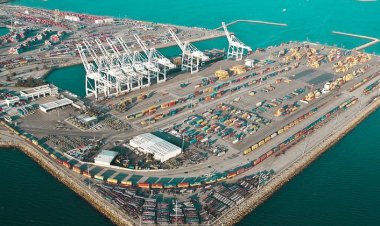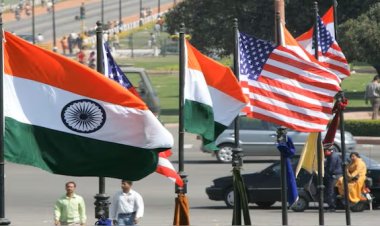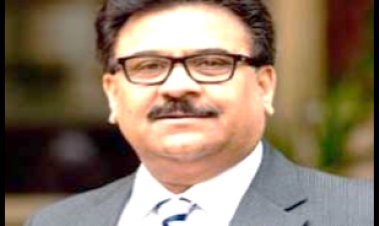United Kingdom: The New Frontiers of Radical Islam
This paper aims to look into how radical Islam is posing a threat to the multicultural fabric of Britain. Radicalization is taking through building various mosques with the assistance of various Middle Eastern countries in the name of religious teachings. However, the ulterior motive is to gain control over the country by promoting Sharia.
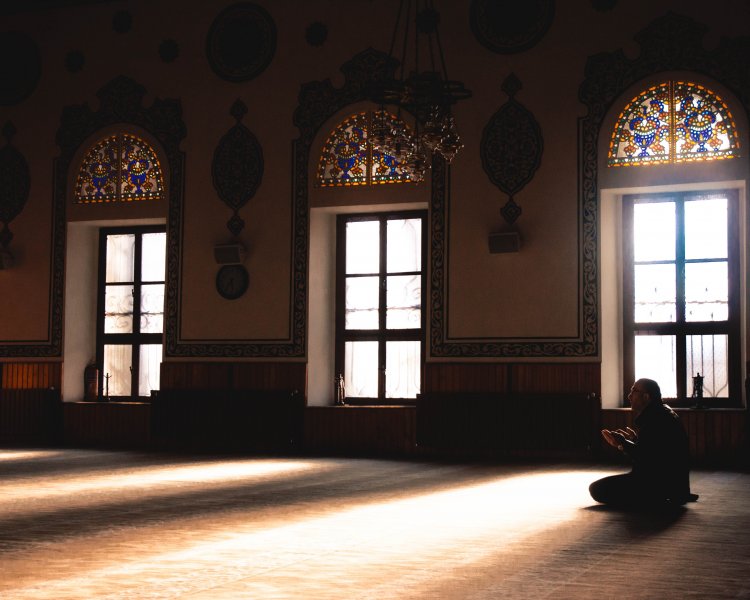
Analysis
By Dr. Chander Bhan Yadav
Islamist movements in the United Kingdom (UK) have the same ambitions as their ideological followers at different places of the world: i.e. Formation of an Islamic state governed by sharia law. The Islamist factions focus on the Islamization of individuals and communities by employing the democratic process. However, radical groups are securing political influence usually with compassionate support from politicians towards their cause. With the helping hand of some of the British media outlets, human rights groups, and Universities have also facilitated radicalization in the UK by providing a conducive platform to radical Islamist organizations. Similar to most major European countries, the United Kingdom has a sizeable Muslim population with the number of Muslims in Europe predicted to increase significantly in the near future, the UK's share of Muslims in the population could rise from 6.3 percent in 2016 to 17.2 percent by 2050.
Islam is the second-largest religion in the United Kingdom of Great Britain and Northern Ireland, while more recent Office of National Statistics sources of 2018 accounts it as 5.1% of the total population The vast majority of Muslims in the United Kingdom live in England (5.02% of the population): Scotland (1.45%), Wales (1.50%). London has the greatest population of Muslims in the country.
Estimating the number of Muslim converts living in Britain has always been difficult because census data does not distinguish between whether a religious person has adopted a new faith or was born into it. By using data from the Scottish 2001 census – the only survey which asks respondents what is their religion at birth as well as at the time of the survey estimates has placed the number of Muslim converts in the UK varying between "14,000 and 25,000" but a new study by the inter-faith think-tank Faith Matters suggests the "real figure could be as high as 100,000, with as many as 5,000 new conversions nationwide each year but it is believed to be far more than this".
When practicing religion becomes a threat
More than a third of people in the UK believe that Islam is a threat to the British way of life, according to a report by the anti-fascist group Hope not Hate. In 2016 July, "35 percent of people agreed on the thought that Islam is generally a threat to the British way of life, compared with 30 percent, who thought it was compatible, 49 percent of the people voted Conservative in the 2017 general election, which reflected it is generally very much incompatible, and 22 percent of Labour voters agreed". Several organizations established in the U.K. between the 1960s and the 1990s had links to radical Islamists in Europe: the North African Muslim Brotherhood and South Asian Jamaat-e-Islamic to name a few. The United Kingdom has been a focal point for Islamist activity for decades. Studies show that the UK has been a base for "fundraising and staffing for terrorist causes across the world," Some of these groups who are actively involved in proselytization and radicalism are "Islamic Forum of Europe" (IFE), the "U.K. Islamic Mission" (UKIM), "the Muslim Council of Britain" (MCB), and the "Muslim Association of Britain'' (MAB).
The British Muslim passport holders who traveled to Syria to fight for ISIS, have also engaged in jihadist causes in different parts of the world. It may be highlighted here that one UK citizen "recruited by al-Qaeda carried out suicide bombings on London's public transportation network on July 7, 2005". (Ed Husain, The Islamist: Why I Joined Radical Islam in Britain, What I Saw Inside and Why I Left (London: Penguin, 2007).
The basic objective of these groups is to "Islamizing the individual and then the community" in the UK. The government fears a rapid surge in terrorism. The secret report revealed that "around 3,000 British children enrolled in Pakistani madrassas are known to have terrorist links annually which teach a puffed-up version of jihad." British officials fear that youths are radicalized at these extremist schools and return to the UK with a distorted belief posing a terrorism risk to society.
Muslim Brotherhood movement and their literature suggest, that "western society is inherently hostile to Muslim faith and interests and that Muslims must respond by maintaining their distance and autonomy".
Promotion of extremism
Henry Jackson Society report in July 2017 claimed that Middle Eastern nations are providing financial support to mosques and Islamic educational institutions that have been linked to the spread of extremist material with "an illiberal, bigoted Wahhabi ideology”.
The report further argues that "Saudi Arabia has since the 1960s sponsored a multimillion-dollar effort to export Wahhabi Islam across the Islamic world, including to Muslim communities in the west." It states that "In the UK, this funding has primarily taken the form of endowments to mosques and Islamic educational institutions, which have in turn played host to extremist preachers and the distribution of extremist literature". Saudi Arabia has reportedly spent "$100 billion over the past few decades to promote Wahhabism worldwide, including funding mosques, schools, religious institutions, education, and religious literature around the world. which has been spent on 1,500 mosques, 210 Islamic centres and dozens of Muslim academies and schools".
Turkey's "Ottoman dream"
The Turkish Directorate of Religious Affairs (Diyanet) is an official state institution tasked with regulating the religious arena at home and abroad. The Diyanet was founded in 1924 to regulate and control the religious arena within Turkey. It is one of the oldest official institutions. The UK branch of the Diyanet was founded relatively late, in 2001. As of now, it manages 17 mosques with 25 personnel. During the 1970s era, Diyanet began providing religious services for Turkish citizens abroad. Activities of Diyanet have also been expanded cross-border, first in Western Europe and then to the Balkan Peninsula and ex- blocs of Soviet Turkic states in Asia. As of 2018, the Diyanet was functional in 36 countries with 61 branches. It has more than 100, thousands of Imams and people on the payroll to promote the caliphate.
Cambridge Central Mosque is another example of how the Turkish government under Erdogan pumped money to construct this grand mosque. As reported, the Erdogan government spent a whopping amount of "£24 million from 2015 to 2019".
A report from the International Centre for the Study of Radicalisation at King’s College London titled The Islamic Movement in Britain concluded that "Qatar and Turkey are financing and supporting an interlinked network of Muslim Brotherhood organisations across Europe." The report further states the "cluster of connections in the network could be traced to The Muslim Council of Britain (MCB) is arguably the key node in the network of the Islamic Movement in Britain." It said that the "MCB is no longer the government's sole consultative partner regarding Muslim matters, and polls have revealed meager support from British Muslims, undermining its image as the voice of the Muslim community".
The basic objective of these radical groups is to "influence government policies through building more mosques and promoting more Muslim population".
The author is an alumnus of Jawaharlal Nehru University (Delhi, India) from the School of International Studies. He is presently residing in the UK and can be reached through mail: studio24x7@outlook.com
Disclaimer: This article is the author's individual scholastic contribution and does not necessarily reflect the organisation's viewpoint.

